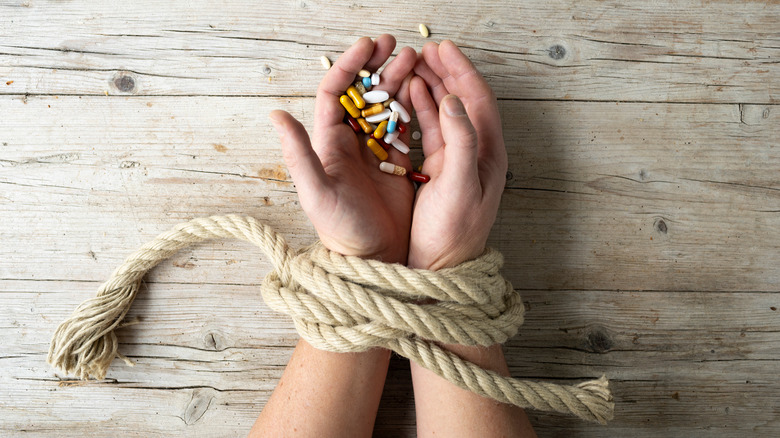What's The Difference Between A Drug Tolerance And Addiction?
Drug addiction is a serious public health concern. According to WebMD, about 6% of the U.S. population has used prescription medications for casual reasons. Globally, the story isn't so different. Whether for pain relief or for recreational reasons, substance misuse is a worldwide phenomenon. A 2019 World Drug Report published by the United Nations notes that 5.5% of the world population aged 15–64 (about 271 million people) used drugs in 2016. In the case of drug use disorders, they affect 35 million people worldwide. However, only one in seven people get the necessary help they need.
If you feel you might be addicted to drugs, it's vital to understand what constitutes drug addiction and how it differs from drug tolerance. These two terms have sometimes been used interchangeably but have distinct meanings. It can be confusing to understand where to stand in your situation if you're unfamiliar with the differences between the two terms. The clearer you are about whether you're drug-tolerant or addicted, the better your chances of finding the right solution to manage the problem. Furthermore, consulting an addiction specialist or doctor can be the first step to healing.
What is drug tolerance?
According to Medical News Today, drug tolerance indicates that your body or brain can no longer respond to a specific drug in the same manner as it once did. This applies to both prescription and recreational drugs. Let's say you use morphine for a long time. With time, you might need to start taking larger doses to produce the same effect as when it was first introduced into your system. Inferring from this example, people battling chronic pain, a mental illness, immune-related conditions, or seizure disorders may be at higher risk of drug tolerance (via Healthline). This can be daunting because changing dosages can mean more side effects, while other drugs might not be as effective or might carry a higher risk for addiction.
Medical News Today cites three main ways your doctor might deal with drug tolerance. They might suggest taking higher doses, weaning you off your medication, or opting for a new medication type. Some severe cases of drug tolerance might require psychotherapy to help subjects taper off medications. Note that no one-size-fits-all solution exists, and your doctor can only recommend any of these remedy options after effectively diagnosing the problem. Therefore, consult your doctor when you see signs of drug tolerance.
What is an addiction?
Drug addiction or substance use disorder happens when a person can't control their use of a particular drug, despite its potentially harmful effects (via Mayo Clinic). Often, it starts with experimenting with the drug, exposure to prescribed medications, or receiving medications from someone else apart from a health expert. Many people forget that drugs don't work the same for everyone, so it can be difficult to determine whether you'll benefit or respond negatively to a drug not prescribed by a doctor, according to Medline Plus.
Cleveland Clinic notes that the most predominant sign of substance use disorder is the inability to stop. While the first use of a drug might be a choice, it can affect your decision-making ability in your brain, making it hard to bring yourself to stop using it. According to WebMD, some signs of addiction include taking drugs even when you don't need them, losing interest in things you love, or experiencing trouble focusing at school or work without taking the drug. The good news is that regardless of the causes of drug addiction, the condition is treatable and treatment options include counseling and medication, when necessary.
If you or anyone you know needs help with addiction issues, help is available. Visit the Substance Abuse and Mental Health Services Administration website or contact SAMHSA's National Helpline at 1-800-662-HELP (4357).



